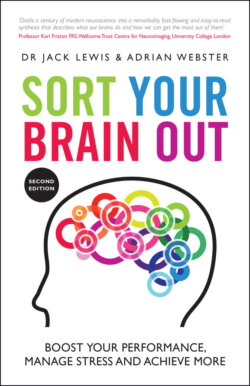Читать книгу Sort Your Brain Out - Джек Льюис, Адриан Вебстер - Страница 35
Instant response pressure
ОглавлениеThe virtual world of social and professional networking is cunningly designed to lure us into patterns of use that get us addicted to constant interaction. This is generating a whole new, previously unknown world of stress. Teenagers and adults alike are often expected to reply immediately to any text, email, instant message or online social networking message. Teenagers who don't respond straight away risk being socially ostracised and adults face the possibility of losing out at work or in new business opportunities. Many people now feel a huge pressure to be available constantly, day and night, throughout the weekend and even on holiday.
It makes sense to do whatever we can to better manage the expectation of an immediate response to create a stress‐relieving buffer between ourselves and the cyber‐onslaught of constant connectivity. To have any hope of changing other people's expectations you need to set up a voicemail message or automatic email reply along the lines of: “Thanks for getting in touch. To improve work flow I pick up calls and emails just once or twice a day. I will endeavour to get back to you within the next 24 hours. Thank you for your patience.” The idea is that by giving them an accurate idea of when they might hear back from you, they know what to expect and realise that you're not going to be instantly available.
We can't change a culture of high expectations overnight, but little by little, starting with friends or family and then moving onto professional contacts, once everyone realizes just how important this is, we could eventually regain the right to reply at a time that is right for us.
